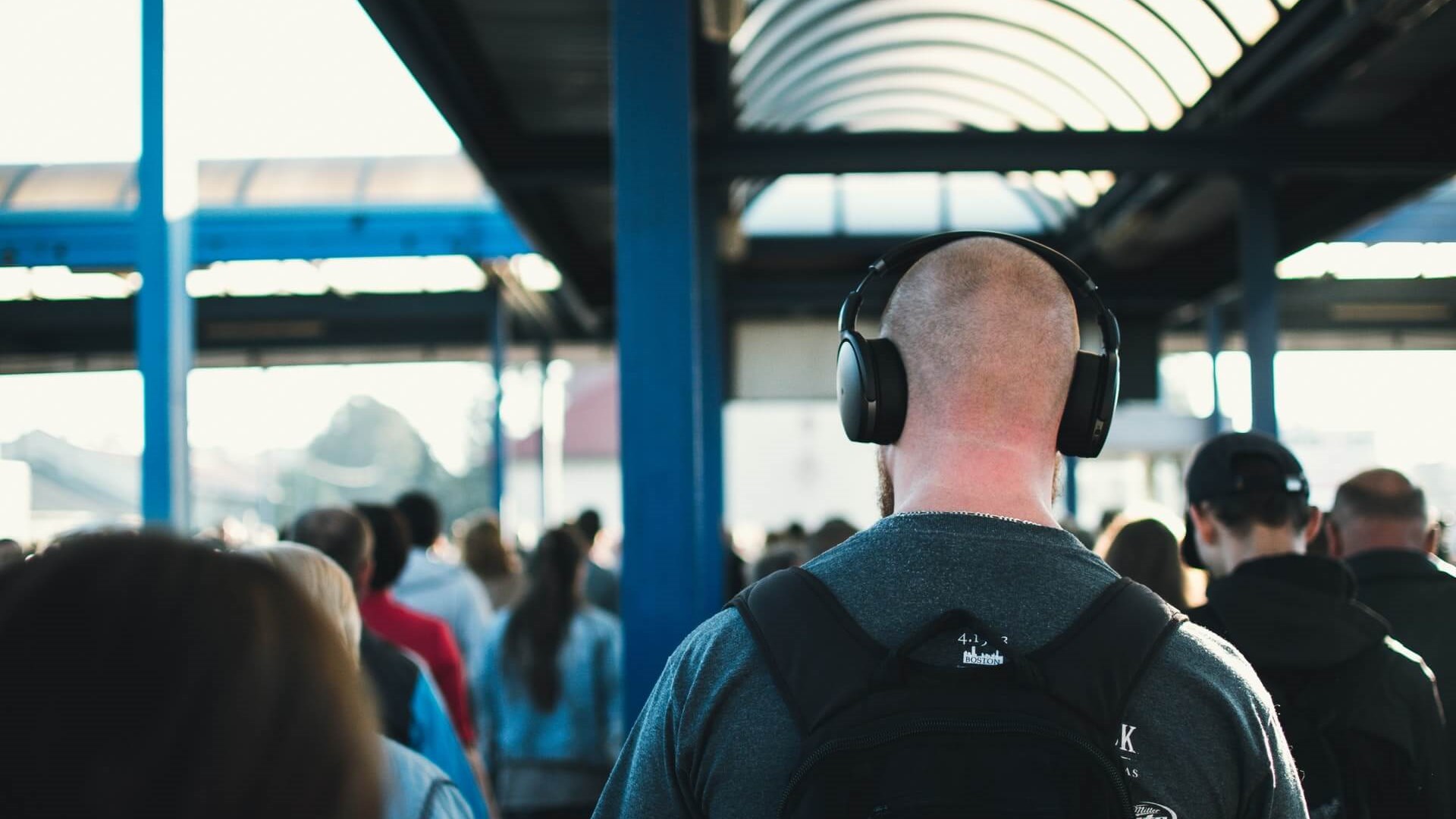
How do I know if I'm lonely?
Loneliness can be hard to recognise or accept sometimes, especially in the age of distraction where we can fill our time with other things, like streaming shows, gaming and social media. UKCP psychotherapists Stephen Westcott and Noel Bell share some guidance on helping you notice the signs of loneliness.
Written by UKCP psychotherapist Stephen Westcott 
Right now, statistics indicate that a third of people are feeling lonely and more women report those feelings than men (although that could be because men talk about it less).
The Encyclopedia of Human Relationships defines loneliness as ‘the distress that results from discrepancies between ideal and perceived social relationships.’ So, loneliness is an issue of expectations versus reality. In an ever connected, social-media-fuelled world, it means it’s more likely we’ll feel lonely as we see everybody’s idealised version of a social life on screen versus real life experience – which explains why young people are feeling it more (40 per cent of 16-24 year olds report feelings of loneliness).
Signs to look out for:
- Excess spending – managing feelings with shopping.
- Weight gain – managing feelings with food.
- Excessive bathing or hot showers – seeking the feeling of warmth that might be missing.
- Your friends are lonely too – misery loves company and can be self-reinforcing.
- Excessive TV/YouTube/TikTok binges – again, this is a distraction tactic.
- Feeling tired or stressed often – this can of course be caused by other things, but it is also linked to loneliness.
- Getting ill often. Our mental health affects our immune system so if we’re down, we’re more likely to get ill.
It might only be during periods of change that we notice feelings of loneliness, and if we find other coping mechanisms (such as binge-watching TV or social media and the other habits listed above), we might just push these feelings away (and maybe even friends) and turn those coping strategies into long-term habits. So, if some of the above resonates, it might indicate a longer-term pattern has developed.
Tackling loneliness can be about getting your expectations to meet your reality. This may mean adjusting expectations of people or nurturing the relationships you have to try to make them what you would like them to be. This can involve some good honest conversations. Sometimes people fear that these truthful discussions will harm relationships, but if handled well, it usually makes them better.
If needs be, trying new hobbies or interests can help bring new friendships into your life. This can fit in with goals around self-care, from eating better and exercising, to learning a new skill. The trouble with chronic loneliness is that by its very nature it creeps up on us.
Written by UKCP psychotherapist Noel Bell 
Our mental health affects how we think and feel, and how we cope with the ups and downs of life. As we move through different stages of life and our circumstances change, our mental health can change too.
Everyday loneliness can be transitory and reactive to specific events happening in life, such as geographical relocation, bereavement, relationship break-up or redundancy. Such reactions can be short-term, and things improve when one’s resilience kicks in and life can feel back to normal. Long-term loneliness, as opposed to long-term aloneness, is characterised by constant and unrelenting feelings of being alone, separated or divided from others, and an inability to connect on a deeper level. Long-term loneliness could be chronic when one’s emotional and mental health is negatively impacted by an absence of social contact. This could mean higher levels of stress, poor sleep and, in turn, harm on the body, as well as greater susceptibility to depression and anxiety
Whilst loneliness, or even chronic loneliness, is not considered a specific mental health condition, there is increasing evidence that loneliness can affect your physical and emotional health.
Being lonely can often lead to feelings of worry, feeling low, or just struggling to work up the energy to do things that previously appeared to be routine. Being worried, low, withdrawing from social activities or feeling ‘out of sorts’ are important signs that you're not feeling as well as you could be.
It is sometimes hard to trace the root cause of these patterns but taking the time to stop and reflect every once in a while can really help. There may be other mental health concerns that have led to relationships being difficult in the first place. These are usually to do with childhood experiences that have set up maladaptive relational patterns that feel so normal we don’t even know we’re doing it. That doesn’t mean they’re not reversible though. It just takes time, self-care and sometimes a little external help.
Psychotherapy (sometimes simply called talking therapy) is one of the ways you can get help. Psychotherapy allows you the space to explore your beliefs and fears around people, friendships, and intimacy. You can reflect on how your own upbringing or life experiences have affected this narrative and begin to challenge or change that story. It can then become easier to make new friends as you remove the blocks that have gradually been built over time. It is very difficult to change something when you don’t know what it is that needs to change. Psychotherapy can help you identify what is and isn’t working so you are clearer about your direction of travel.
Find a UKCP accredited therapist on our register
You can also find support by contacting:
In an emergency, call 999
NHS (England), call 111
NHS Direct (Wales), call 0845 46 47
The Samaritans 24-hour helpline, call 116 123
Share
Like most websites, we use cookies. If this is okay with you, please close this message or read more about your options.

